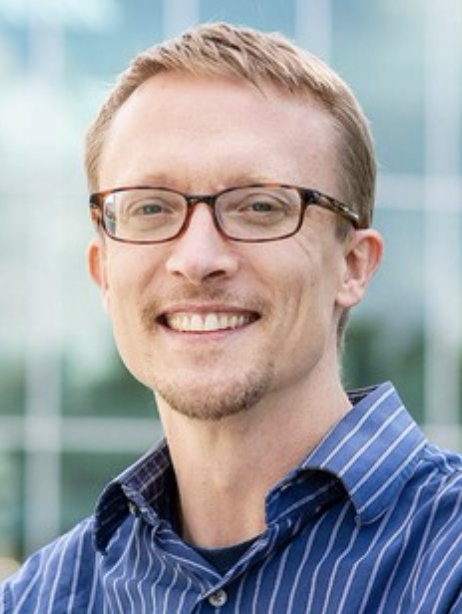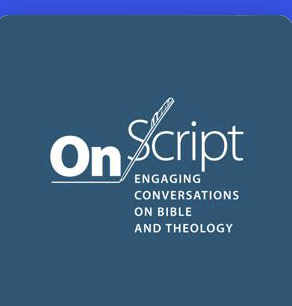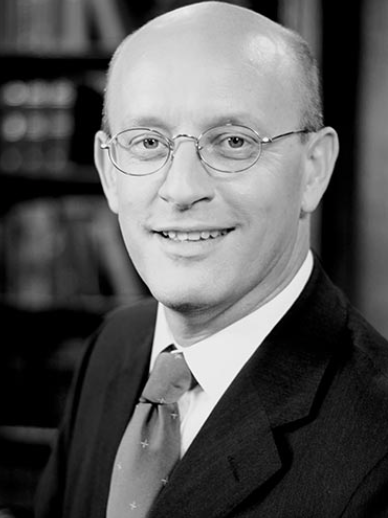What will help Generation Z become successful and more resilient? Dr. Gordon E. Carkner, author and meta-educator, suggests that the secret is to follow the narrative strength of virtue. Zoomers will be well-served if mentors, teachers and employers exhibit character and reveal how virtue works for the common good in real life. Beyond mere career success, we also need relational skill to make life function well. He believes that there is an untapped personal power in virtue waiting for this generation to access. Virtue is a foundational concern today. See also the dialogue at the Hoover Institute. https://www.youtube.com/watch?v=o2u54a1FL28 A Conversation with Tom Holland, Stephen Meyer, and Douglas Murray.
You simply must read the brilliant book by Robert Farrar Capon, An Offering of Uncles.
Op Ed article on mental health of adolescents: https://www.theglobeandmail.com/opinion/article-adolescents-are-in-the-midst-of-a-full-blown-mental-health-crisis/
UK Philosopher Roger Scrutin defines Virtue: “Virtue consists in the ability take full responsibility for one’s acts, intentions, and avowals, in the face of all the motives for renouncing or denouncing them. It is the ability to retain and sustain the first-personal centre of one’s life and emotions, in the face of decentering temptations with which we are surrounded and which reflect the fact that we are human beings, with animal fears and appetites, and not transcendental subjects, motivated by reason alone….. Virtues are dispositions that we praise, and their absence is the object of shame…. It is through virtue that our actions and emotions remain centred in the self, and vice means the decentering of action and emotion…. Vice is literally a loss of self-control, and the vicious person is the one on whom we cannot rely in matters of obligation and commitment…. Freedom and accountability are co-extensive in the human agent…. Freedom and community are linked by their very nature, and the truly free being is always taking account of others in order to coordinate his or her presence with theirs…. We need the virtues that transfer our motives from the animal to the personal centre of our being–the virtues that put us in charge of our passions [because] we exist within a tightly woven social context. Human beings find their fulfilment in mutual love and self-giving, but they get to this point via a long path of self-development, in which imitation, obedience and self-control are necessary moments….. Let’s put virtue and good habits back at the centre of personal life.” (R. Scrutin, On Human Nature, 100, 103, 104, 111, 112)
See also Book of Proverbs on the Master Virtue of Wisdom.
Katharine Hayhoe on Empowering Climate Conversations: https://www.youtube.com/watch?v=FyC6WqUNgF0
More blog posts on Virtue: https://ubcgcu.org/2022/06/05/virtues-of-human-stewardship-of-planet-earth/
Vices, which are very easy to fall into, include: pride, greed, cruelty, violence or abuse of others, lying, grift/deception/cheating, anger, hatred/racism, rage, narcissism, gluttony, lust, sloth, envy. This is us at our lowest level of maturity and responsibility, when we are least humane.
Grappling with Moral Relativism: https://ubcgcu.org/2013/11/25/problem-of-moral-relativism/
“The reality of a power behind the moral law, a power that presses in upon us and hates most of what we do, is at once awe-inspiring and tragic. It is awe-inspiring to think that there is an absolute goodness, a power beyond the universe that presses itself within the universe…. The quest for goodness finds expression in longing for justice and a life of significance…. Christianity is good for the world because we get Jesus, and when you get Jesus you get everything. Because of Jesus, we are part of a story that gives our lives meaning, hope, forgiveness and the possibility of wholeness.” (Paul Gould, Cultural Apologetics, 161-2)
Models of Successful Community Building
L’ Abri Canada: community, common meals, co-operative labour, dialogue, teaching, telling my story, exploring calling, grappling with worldviews
Apologetics Canada: addressing the toughest questions of the day with wisdom and grace.
Taizé France: international, ecumenical, dialectic, worship, bold pursuit of God.
Habitat for Humanity: collaborate in helping homeless with young and senior strong backs. See also ‘More Than a Roof’ in Vancouver, B.C.
Laurentian Leadership Centre in Ottawa: study, internships on Parliament Hill, community, friendship, engagement.
Other grass roots experiments in community, character shaping, servant leadership, missio dei (on and off campus) à Bridges, a new UBC Anglican dialogical community.
Exploring a Sense of Call
Ethical meanings involve a sense of call: either transcendent or immanent. Examples include God’s will or planetary health, justice for the marginalized, reducing suffering/disease, education or boosting human capacities and competencies. Zoomers are searching for such a call. Ask them, “What is your passion?” “What pulls you forward?”
Meanings call us to aspire to, live up to, what is important: a higher, truer form of life as individuals and as a society. Upward moral mobility is the key: to escape from selfishness, narcissism, cynicism and nihilism. What is the most deeply animating force in your life? Don’t settle for mediocrity.
Such interpretations happen against the backdrop of a whole complex or “landscape of meanings” within which an individual agent operates. This includes a whole constellation of intuitions, motives, norms and virtues. The whole (gestalt/take) is vital to our understanding of individual meanings: both thinking and feeling.
The Ultimate Goal: To make coherent sense of one’s self, one’s moral framework, one’s moral progress, working towards a robust identity, as one embraces and builds a relationship with the good. We can get better at this over time, through seeing things better—moral growth through coming closer to the truth.
See also Abigail Favale, The Genesis of Gender.
https://www.youtube.com/watch?v=gYR0xP1j4PY Lauren Daigle, Rescue
THREE RUNGS IN THE LADDER OF IDENTITY: EXPLORING NEW SPACES FOR SHAPING HUMAN MEANING
(Charles Taylor, The Language Animal)
Habitus: Pre-articulate enactment/embodiment/performativity/praxis (existential habits, covenants and commitments). Example: wedding, worship, baptism, planting a tree, justice activity like defending the poor, saying The Lord’s Prayer, speaking truth to power. (Jamie Smith, You Are What You Love)
Verbal Articulation: naming a norm together with its crucial features (for example, a code, principles and precepts, rights, virtues to emulate, a family of values—Psalm 119). This can also be captured by a great work of art, a good exemplary life (MLK), poem or music concert, a symbol, metaphor or meaningful story such as in a novel: Les Misérables; or Brothers Karamazov. Malcolm Guite is a very articulate Cambridge University poet.
Hermeneutical Account (raison d’être): discerning its overall role in our lives (rationale for the code) and its role in the larger world. Rational aspect of metabiological meaning: definition and clarification. Parts are understood in terms of the larger whole. Process of making (human) sense of agency, intuitions and action. Fruitful point of dialogue with others (exploring the dimensions of a social imaginary). See Jens Zimmermann, Hemeneutics: a very short introduction; Incarnational Humanism.
Virtue & Suffering: Can We Grow in Character through Suffering?
We ought not shield emerging adults from the crucible of suffering and tragedy. Reality therapy is a route to growth and meaning (rehabilitation of self-examined identity). Psychiatrist Scott Peck: “Life is hard.” Romans 5: 1-5, Character emerges through suffering as we persevere. Experts say that to live well is to suffer: A life of happiness will also necessarily involve considerable pain, even trauma and tragedy.
Can we train a new team of mentors focused on supporting Zoomers to take responsibility for critical moral growth and serious character goals (Integrity by Henry Cloud)? Can we mentor and walk alongside them? Can we create spaces for community and grow their confidence?
The Issues Zoomers Care About: climate change, transgender rights, loneliness, police brutality, gun control, cost of living (high rent), racial inequality, poverty, government accountability, safety and security, challenges of economic opportunity and student debt. Much of it involves human suffering.
“A good place to find your calling is in the suffering interfaces at home and around the world, cracks in the sidewalk of life.” (Gordon T. Smith, Ambrose University). This is suffering love.
See Making Sense Out of Suffering by Peter Kreeft
The Language of Meaning: INSPIRATION, IMAGINATION, RE-ORIENTATION, RECONFIGURATION.
Zoomers are asking: How can I live in the house of meaning constructed by my forebears, or how can I create a new one of my own, one with which I resonate, and by which I am inspired? Constitutive language (Charles Taylor, The Language Animal) powerfully opens potential new worlds for us, and breaks out of cultural, intellectual stifling due to scientism and relativism; fundamentalism and license. Moral Sources become sources of identity.
Philosopher Charles Taylor calls this the constitutive good: the realities contemplation of which, or contact with which, strengthens our commitment to lean into the good. A force beyond us leads us into a creative, interactive relationship with higher values and ideals. Resonance occurs. It involves personal transformation and motivation to do the good, actualize one’s higher potential.
Epiphanies of transcendence occur: encounters with God or natural beauty/creation, strong personal experiences through travel, a powerful work of art or literature, finding a great companion/love or mentor. These dramatic experiences are important to personal transformation (e.g. Moses and the burning bush, Jacob’s ladder, Mary and the angel) and they shape our identity and calling.
Language is central to moral sources: creates, alters or breaks connections between people in significant ways. It can open new spaces for human meanings, vision for life and human identity. Such is the language of the kingdom of God, or Jesus is Lord. Words Create World. We must have a take on reality and what constitutes progress, or we entertain an identity crisis.
See James K.A. Smith, You Are What You Love.
The Creative Nature of Discourse
Generation Z Engages Church Tradition (Charles Taylor, The Language Animal, chapter 7). Critical to the changes they may want to offer for new or fresh meanings or practice within church life. They must own the narrative and carry the Gospel forward, and interpret it for their generation.
Discourse has important constitutive power through providing a footing on which people stand with respect to each other. It often involves an interactional text (a constitution, mission statement or bill of rights, the Bible, communal covenant). The language animal is also a social animal, following certain habituses: “the embodied sensibility which makes possible structured improvisation. To take on a habitus is to embody certain social meanings [and values]” (C. Taylor, 2016, 272). Discourse uses language as a way of setting out the parameters of social reality, but also to change social reality where necessary—the imaginative dimension.
The Doxa of a society is its felt reality: “the taken-for-granted, preconscious understandings of the world and our place in it that shape our more conscious awareness.” (C. Taylor, 2016, 273) See Taylor’s concept of social imaginary; Keesmat and Walsh, Romans Disarmed; James Sire, The Universe Next Door.) Reaching young people in the West today requires cross-cultural skill sets. This is related to the concept of moral footing.
Ritual (sabbath, baptism, family meals, memorials, various celebrations) is the key to repair or restore the individual’s relationship to the social-emotional order.
One’s Life Narrative Undergirds the Creation of Meaning/Solidification of Identity: SEEKERS ON A JOURNEY: GROWING PSYCHOLOGICALLY, SPIRITUALLY AND MORALLY FROM YOUTH TO ADULTHOOD [BILDUNGSROMANS], C. TAYLOR, 2016, 318-19.
“Stories give us an understanding of life, people, and what happens to them which is peculiar (i.e., distinct from what other forms, like works of science and philosophy), and also unsubstitutable.” (C. Taylor, 2016, 291). Key insight: “It is through story that we find or devise ways of living bearably in time.” (C. Taylor, 2016, 319). We must have a take on reality and what constitutes progress, or we entertain an identity crisis.
“In what contexts are people able to open up and tell their full story?” Jasmine, PhD medical biology student UBC (Psalm 139). Jasmine had to review and rethink her entire history—it took two painful years.
Zommers’ sense of lostness/homelessness is a problem: My story is broken/dysfunctional, the future looks bleak, I am worried, I can see the coming apocalypse. They may be just surviving moment to moment, week to week. There is often a need for a turn-around story, a redemptive story (C. Taylor, 2016, chapter 8), finding my way out of a bad story.
How I tell my story defines my identity, which is central to being a self. We each have an inner biographer—linking past, present and future mental states. This kind of temporal (diachronic) mapping is critical to a healthy identity: Where have I come from? Where am I going? What time is it? What are my challenges and opportunities going forward?
Executive Control: It is imperative that I care about my future self as much as my present self. Closely associated with consciousness. Storytelling helps me become a self, reckon with dissonance and conflict, make sense of my life on an ongoing basis. (J. Peterson’s Self-Authoring Suite)
What’s Love Got to do with It?
Love is the most complete form of knowing and the resurrection is the most complete form of love. Wittgenstein: “It is love that believes the resurrection.”
A new creation people, a new moral order, a new future in the present, emerges through the cross and resurrection: Jubilee
“Jesus resurrection, by unveiling the creator’s love for the world, opens up the space and time for a holistic mode of knowing, a knowing which includes historical knowledge of the real world by framing it within the loving gratitude which answers the creator’s own sovereign love.” ~N.T. Wright
Knowing is a whole person, communal, here-and-now activity that is redeemed by love.
Love (III) by George Herbert 17th Century
Love bade me welcome. Yet my soul drew back
Guilty of dust and sin.
But quick-eyed Love, observing me grow slack
From my first entrance in,
Drew nearer to me, sweetly questioning,
If I lacked any thing.
A guest, I answered, worthy to be here:
Love said, You shall be he.
I the unkind, ungrateful? Ah my dear,
I cannot look on thee.
Love took my hand, and smiling did reply,
Who made the eyes but I?
Truth Lord, but I have marred them: let my shame
Go where it doth deserve.
And know you not, says Love, who bore the blame?
My dear, then I will serve.
You must sit down, says Love, and taste my meat:
So I did sit and eat.
Agape Love Offers an Identity Footing and a Platform for Action by Gen Z
The strong version of transcendence means that, while such love comes from outside human culture, it offers transforming dynamics within the economies of the full range of culture spheres: in science, the arts, ethics and religion. Charles Taylor believes that the epiphanic discovery of agape love can act as a hypergood, in that it influences a rearrangement of the hierarchy of one’s moral goods or values, bringing into play both a transfiguration and transvaluation within the horizon/frame of the moral self. This enables self-transcendence and motivation for embracing the good, taking responsibility, sacrificing for the other, facing pain, mitigating evil and grappling with personal challenges. On the transforming power of agape, see Larry Siedentop, Inventing the Individual.












